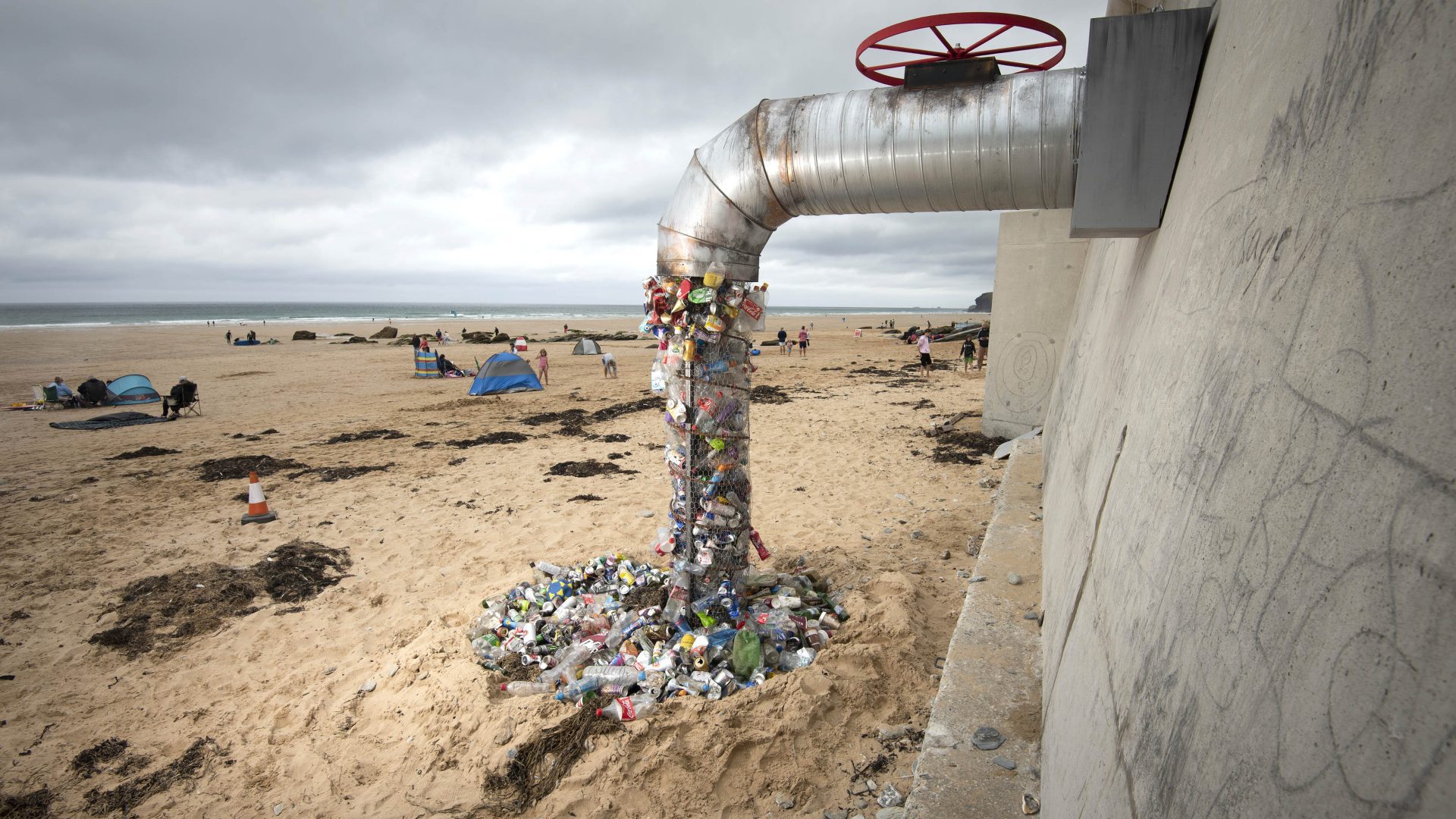
Big plastic polluting brands spotted at Global Plastics Treaty
Find out who they are...
As the Global Plastics Treaty talks heat up, guess what? The big polluters and plastic pushers are back at the table. We’ve picked out a few of the attendees to give a special mention to. Check them out below.
Surfers Against Sewage have been analysing the attendee list for the Global Plastics Treaty to track down the polluting lobby present with a specific focusing on brands we have found polluting our rivers, beaches, mountains and streets in the UK.
The brands we expose below, often position themselves as progressive leaders in the fight for a Global Plastics Treaty – but are far from it. But first, let’s look at three key policy positions worth knowing about to understand if an organisation is truly committed to a genuinely ambitious treaty.
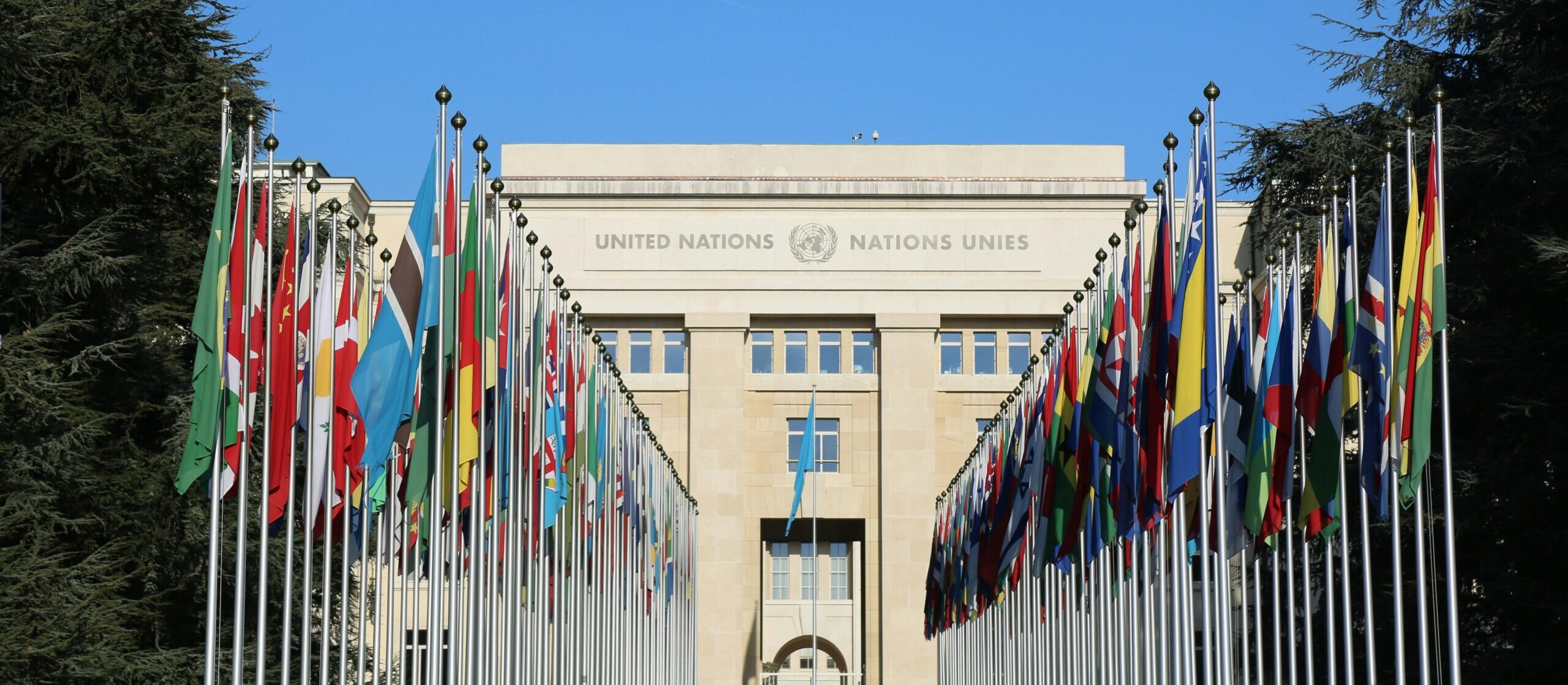
Three red-flag positions worth knowing about:
1. Favouring ‘waste management’ principles over cutting plastic production:
Research shows an undeniable link between plastic production and branded plastic pollution found in the environment, meaning we must prioritise reducing plastic production to end plastic pollution. But brands who benefit financially from plastic production are instead advocating for strong waste management principles, so they can continue to line their pockets. Their argument is that pollution stems from the way we manage plastic waste at the end of its life. While much pollution could be avoided by the implementation of effective waste management initiatives, such as deposit return schemes, 75% of plastic’s lifecycle emissions occur before the production of its materials, and up to 167,000 tonnes of pellets leak into the environment annually, before the products are even made; making the pre-production of plastic items one of the leading causes of plastic pollution and climate emissions. The world can’t afford a treaty that fails to address the source of the problem – not wanting to acknowledge the full life cycle of plastic (and not just plastic products) in treaty text is a huge red flag, so watch out for this!
2. Advocating for ‘sustainable levels of production and consumption’:
Brands who are calling for sustainable levels of production and consumption are set to contribute to the predicted statistic that plastic production is set to triple 2050… that doesn’t sound very ‘sustainable’ to us! Scientists have stated repeatedly that continuing the extraction of fossil fuels will exceed climate targets and continue to pollute already threatened environments and species. 75% of plastics ever produced have become waste – mostly ending up in the world’s oceans. We should be reducing production, not on a trajectory towards record breaking consumption.
3. Arguments that claim to benefit a countries people and economy:
It’s no longer just scientists and environmental advocates calling for limits on plastic production — economists are sounding the alarm. The sector is in crisis: overcapacity has driven down prices, profit margins are collapsing, and credit downgrades, reputational risks, and regulatory pressures are all rising. Continuing to expand production, economists warn, isn’t just dangerous — it’s reckless. A treaty without production limits ignores both science and economic reality. And let’s remember, there can be no economy on a dead planet.
To understand what SAS and the wider eNGO Coalition are calling for, be sure to read our explainer blog, which outlines the seven key actions.
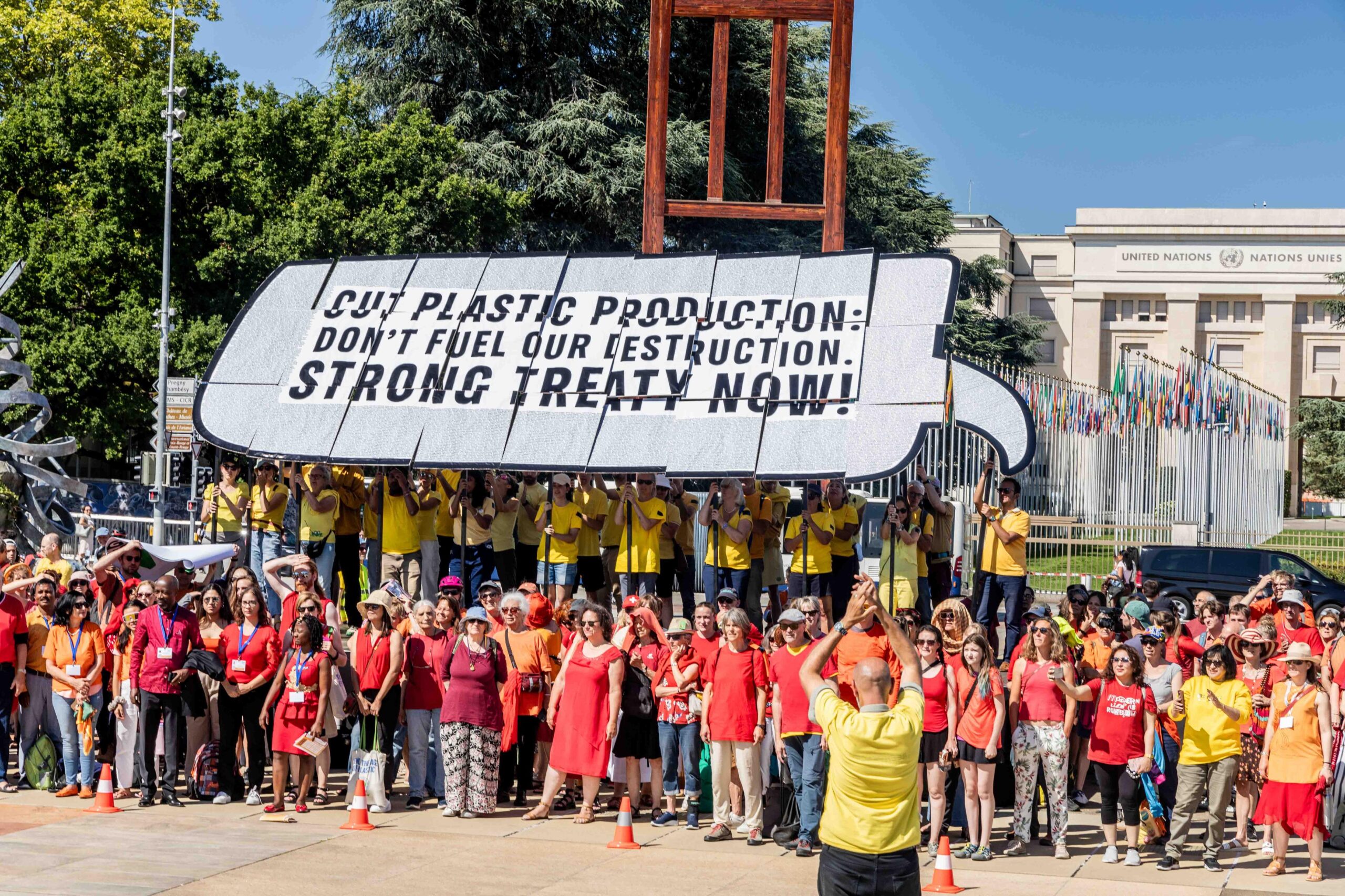
Image credit Break Free From Plastic
Plastic polluters flood negotiations once again
At INC-5.1, there were three times more fossil fuel and chemical industry lobbyists than scientists and scores more lobbyists representing consumer goods companies, packaging manufacturers, and other plastics-dependent industries. With each round of negotiations, their presence and influence has grown.
The very polluters driving the plastics crisis are being allowed to shape the treaty meant to stop it. That cannot continue. From intimidating scientists to lobbying member states and securing seats on national delegations, the polluting lobby attempt to slip under the radar to protect their own financial interests while people and planet suffer.
So, let’s expose them.
The Top Polluting Brands at this Global Plastics Treaty
After analysing the attendee list, we can reveal that top polluters in our SAS Brand Audit are here at negotiations in Geneva… These are all brands who claim they want to see an ambitious Global Plastics Treaty agreed but are actually responsible for lobbying the regressive policies outlined above.
They are:
Coca Cola
- Coca Cola have remained the #1 top polluter in our Dirty Dozen list since we started Brand Audits, meaning they are responsible for the most branded pollution found in cleans across the UK.
- In our most recent report, Coca Cola’s polluting products were found in 50% of all the cleans that took place. The analysis also found that over 7,000 plastic bottles, lids and cans have been recovered from the environment through our Million Mile Cleans since 2019, with current figures likely to be much higher.
- Despite efforts to clean Coca Cola’s plastic pollution from the environment, it’s only a drop in the ocean when considering Coca Cola’s sky-high levels of plastic production – with an astounding 3,224,000 metric tonnes of plastic produced every single year.
- Just last year, Coca Cola also dropped their Reuse targets and watered down their recycling goals – demonstrating that voluntary commitments to end plastic pollution simply do not work. Only a Strong and legally-binding Global Plastic Treaty, which tackles the full Lifecyle of plastic and Cuts Production, will truly put a stop to Coca Cola’s mass pollution.
Pepsi-Co
- Pepsi-Co have been the #2 top polluter three times in a row, and have been in the top 3 worst polluters position for every brand audit to date.
- Pepsi-Co currently produce a staggering 2,500,000 metric tonnes of plastic each year. In weight, that’s about 70 Blue Whales worth of plastic produced every single day.
- Pepsi-Co is a member of the Alliance to End Plastic Waste, which currently have no ambition to cut plastic production in a Global Plastic Treaty.
Nestle
- Nestle – the maker of Nespresso pods and KitKat bars, and a member of the Business Coalition for a Global Treaty – have made it into the Dirty Dozen for 3 of our Brand Audits.
- In our most recent brand audit, Nestle were among the top 3 polluting brands when analysing data collected in cleans across Scotland, and were # 8 in the Dirty Dozen list overall.
- Like many other brands, Nestle made a commitment that 100% of their packaging would be reusable or recyclable by 2025, which they have not met.
- This is all disappointing, however we are happy to see that they are the only top polluter we’ve come across who appear on their website to support plastic reduction. But we won’t believe it until we see it put into practice.
Mars
- Mars have been in our Dirty Dozen list every year since we started Brand Audits.
- Ranking #9 top polluter in our most recent Brand Audit, volunteers removed 303 polluting items owned by Mars from the environment.
- The fifth-generation family business had $54.6 billion in net sales in 2024, up 4.6% from a year earlier. This company is profiting while the planet burns.
Suntory
- Suntory, a Japanese company and the maker of Lucozade, have made it into the Dirty Dozen for 3 of our Brand Audits.
- Whilst they continue to pump out plastic products, their profits also continue to rise at the cost of planetary and human health.
Unilever
- A recent powerful report exposed Unilever as the world’s biggest corporate seller of plastic sachets, perpetuating environmental racism. It revealed that the consumer giant sells a whopping 1,700 plastic sachets around the world every single second. That’s enough sachets sold per year to wrap around the Earth 100 times if you line them up side by side.
All these brands are here – being loud, so we must be louder.
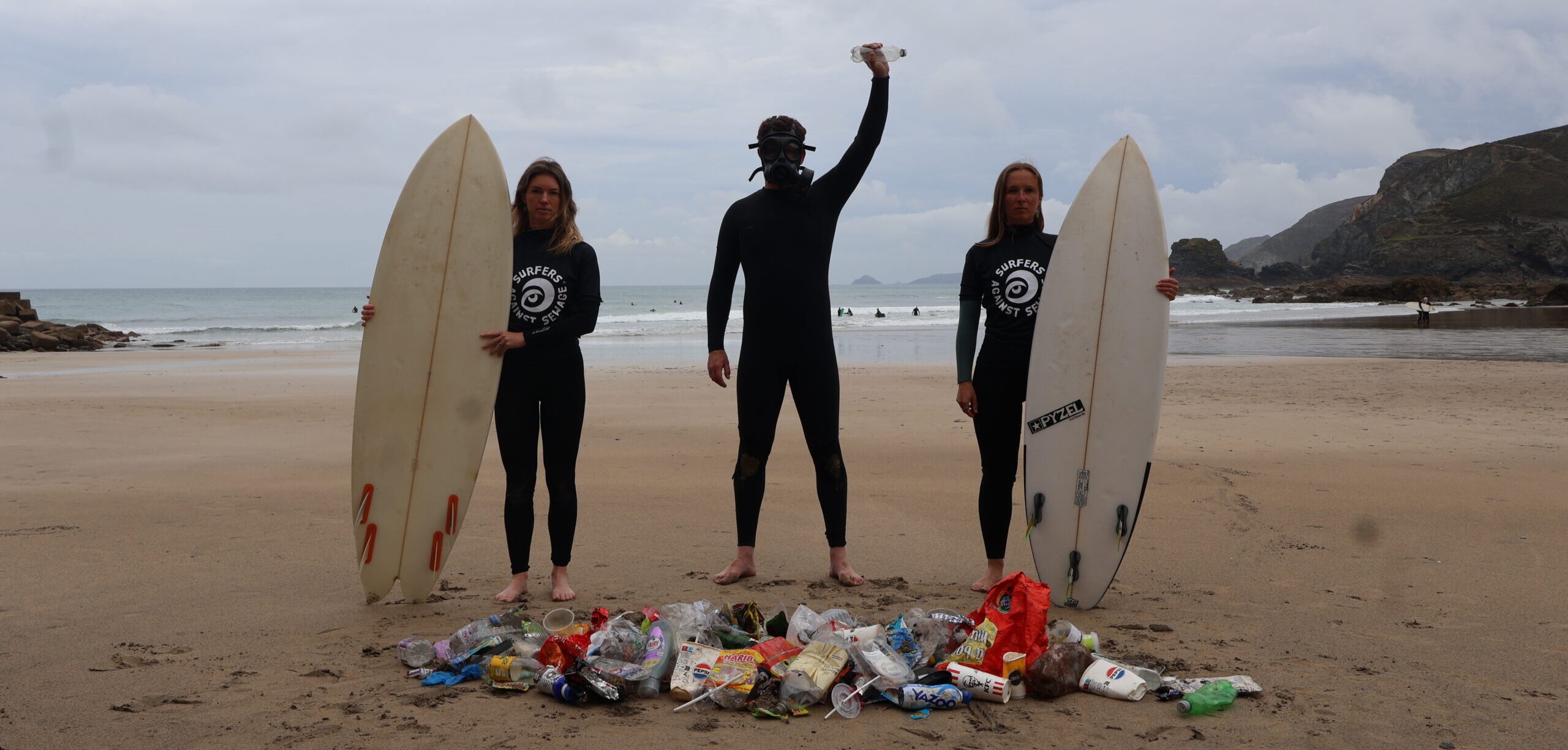
The Fossil Fuel Lobby are also at the talks
It’s not just big brands that we’re concerned about, but the oil and gas lobby too. After all they are two sides of the same coin – in fact, plastic is set to account for one third of carbon budgets if left unchecked.
Just some of the big fossil fuel companies present at the negotiations include ExxonMobil, an American multinational oil and gas corporation and major producer of petrochemicals. Exxon have just reported record breaking production levels – with figures rising by almost 2% from just the start of 2025. They are on a mission to ‘double down’ on advanced recycling (aka Chemical recycling) to ensure they can keep lining their pockets all while increasing production of oil and gas, and subsequently fuelling the plastic crisis.
But ExxonMobil aren’t the only ones, there are so many others such as; Dow, INEOS, SABIC, Chevron Phillips, BASF. For a more detailed breakdown on the oil lobby present, stay tuned on Centre for Environmental International Law (CEIL) website and social media pages.
Coalitions and Alliances to keep an eye on
Alliance to End Plastic Waste (AEPW)
Sounds good right? Wrong. The AEPW is a group founded and led by the plastic and fossil fuel industry, who only advocate for waste management principles, ignoring the damaging impact of plastic production and oil extraction.
The Business Coalition
Comprising of over 300 companies, such as Coca Cola and Unilever, the Business Coalition recently produced an open letter to the UN, and roadmap, titled ‘Treaty on a page’, which outlines a set of requirements to guide negotiators on the critical elements at INC5.2… which sounds good from afar, but look a little closer and you’ll find many flaws. For example, there was no mention of plastic reduction targets (which is key to an ambitious GPT to stop the flow of plastic at its source) but support for ‘sustainable levels of production and consumption of plastics globally,’…
While we welcome ambitious commitments made by brands and coalitions, we are yet to see the progress that’s been pledged and we can’t accept a watered-down deal that doesn’t cut production. Now more than ever, we must all be advocating this. We mustn’t let polluting organisations get away with any greenwashing, and hold them accountable for their missed targets and abhorrent, sky-rocketing pollution which is impacting people and nature, now.
Over the coming days, SAS will be watching these brand’s movements closely and doing everything we can to call them out.
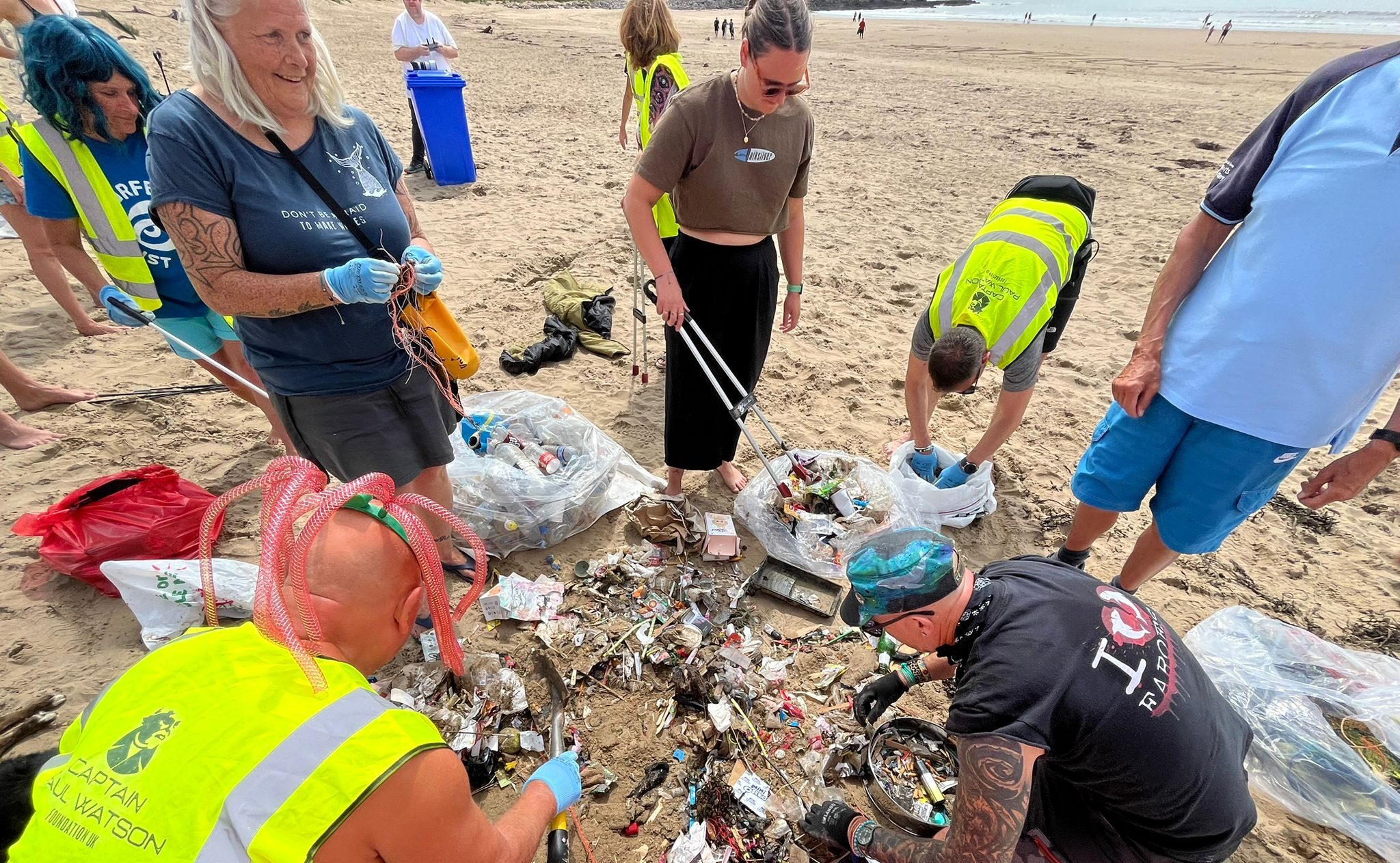
Want to Help us do Something About It?
Here’s what you can do:
Conduct a brand audit
We’re currently collecting new data on many of these top polluters to help us hold them to account.
Help us fuel the fight by conducting your own Million Mile clean and collecting data on the worst polluters in your very own brand audit – here’s the link to sign up.
Share far and wide
Share this blog and our social media posts to make others aware of the polluters flooding the plastics treaty. Tag the polluters to make them aware that we know what they’re doing. Our voice must be louder than theirs. You can also follow our live blog for daily updates.